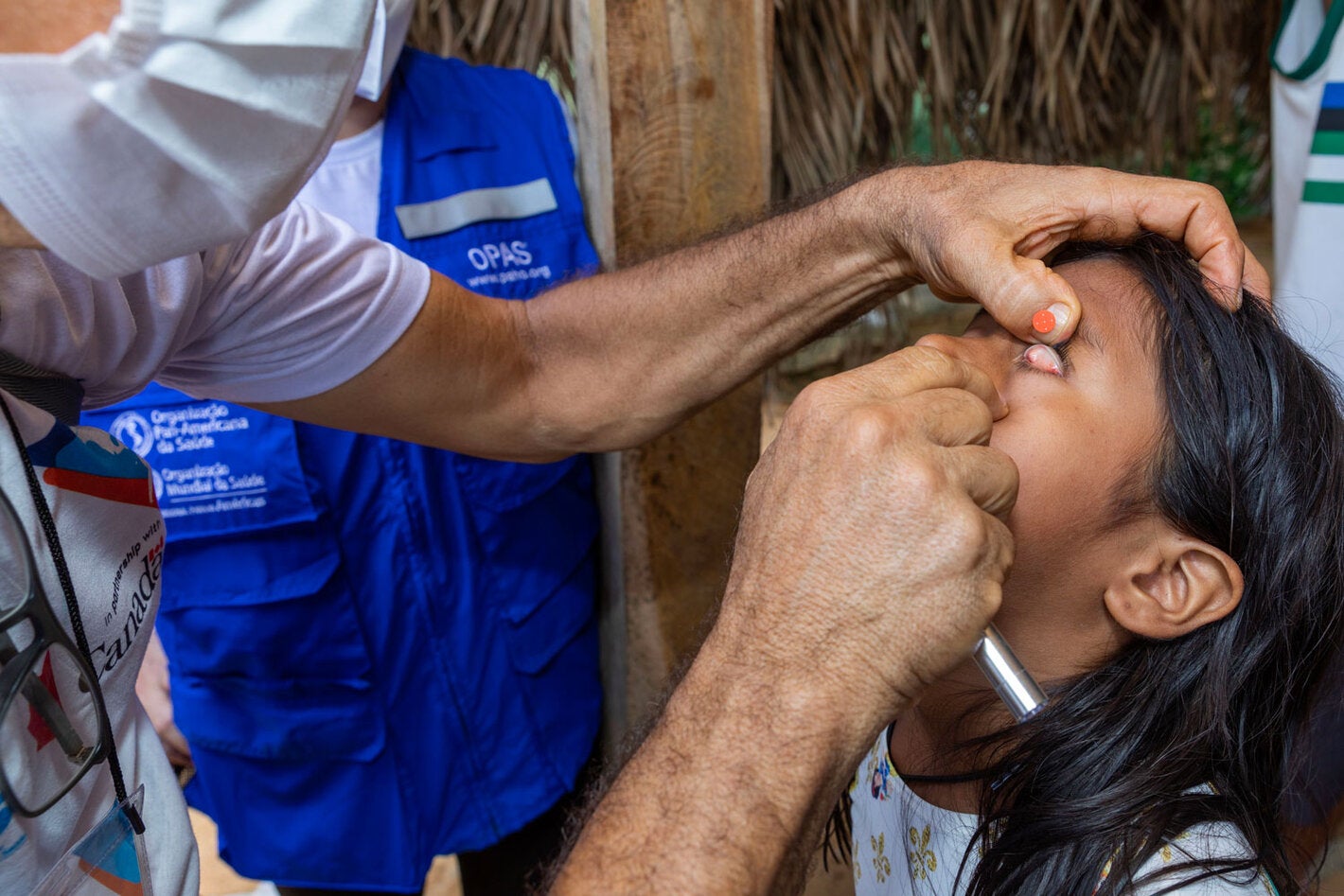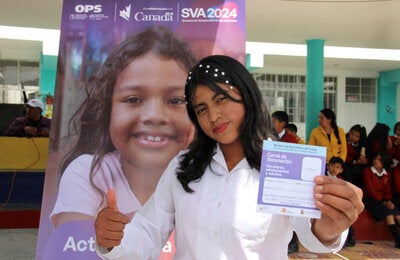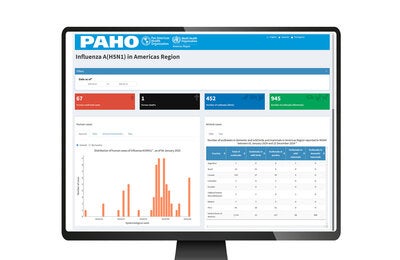
PAHO and partners advance trachoma elimination with projects integrating indigenous communities and gender equity actions.
Washington, DC, May 28, 2024 – The Pan American Health Organization (PAHO), with the support from the Government of Canada, convened the Sixth Regional Trachoma Meeting in Bogotá, Colombia, from May 6-10, 2024.
The meeting brought together health authorities, community representatives, and partner organizations from Guatemala, Colombia, Brazil, Bolivia, Mexico, Venezuela, El Salvador, Ecuador, and Peru to discuss progress and challenges in eliminating this neglected tropical disease across the region.
A key focus was on the crucial role indigenous peoples and promoting gender equity play in accelerating trachoma elimination efforts. Participants shared lessons highlighting how engaging indigenous populations through intercultural dialogues and respecting traditional medicine can foster trust, collaborative solutions, and more effective public health interventions.
«The Region has already written a success story on disease elimination," said Dr. Sylvain Aldighieri, Director of PAHO's Department of Prevention, Control, and Elimination of Communicable Diseases.
"Trachoma is one of the elimination targets, and several countries are joining in this common effort. PAHO’s elimination strategy invites the participation of partners and addresses other diseases and health system strengthening activities to reach everyone, everywhere."
In 2023, PAHO and the Government of Canada launched a partnership to eliminate trachoma as a public health problem in the Americas, focusing on improving the health of communities, women, and children. The Canadian government has committed 15 million Canadian dollars over five years to support these efforts.
Discussions included strengthening trachoma surveillance activities to verify the disease's presence and magnitude in participating countries. Cost-saving tools, such as integrated sero-surveillance, were highlighted. Participants also discussed designing integrated proposals for trachoma prevention, control, and elimination in conjunction with other public health interests like visual health, deworming, vaccination, and addressing other neglected diseases. These measures are especially critical in remote and hard-to-reach areas.
Other key topics discussed included innovative data collection methods, health promotion for behavior change through community-developed messaging, and Mexico's successful experiences in eliminating trachoma. The importance of collaborating with indigenous peoples through intercultural dialogues, which integrate traditional and western medicine, was also emphasized. These dialogues aim to improve access to health services and build mutual understanding and trust between health personnel, traditional doctors, affected individuals, and local authorities. Additionally, the meeting addressed aspects of the Water, Sanitation, and Hygiene (WASH) Strategy, focusing on adapting it to the contexts of the Region’s countries, particularly in remote and vulnerable areas, to prevent communicable diseases.
Despite significant progress, participants acknowledged ongoing challenges and opportunities for further reflection. These include the need for human resources training, increased demand for care in communities, sustaining intersectoral work, and integrating relevant activities such as visual health and the presence of health workers in primary care. Continuous dialogue is essential to prevent the reemergence of trachoma, with a focus on gender, equity, and interculturality within communities.
With the commitment of countries, partner collaboration, and inclusive community engagement, the regional meeting represented an opportunity to share knowledge, strengthen alliances, and drive coordinated action to overcome remaining obstacles and achieve trachoma elimination across the Americas.
Read more information about trachoma here



